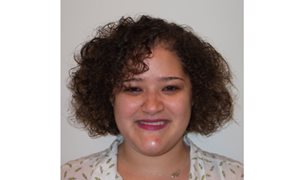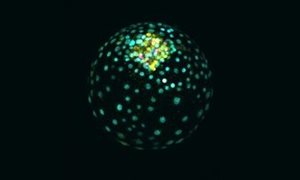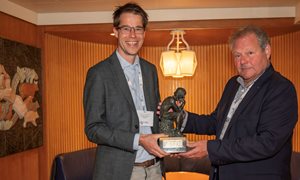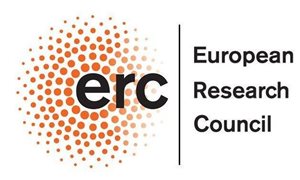 René Dirks, with other members from the lab of Hendrik Marks, theme Cancer development and immune defense, show in a paper in Epigenetics & Chromatin that genomic imprinting (genes expressed from the paternal or maternal allele only) is often lost in cultured embryonic stem cells.
René Dirks, with other members from the lab of Hendrik Marks, theme Cancer development and immune defense, show in a paper in Epigenetics & Chromatin that genomic imprinting (genes expressed from the paternal or maternal allele only) is often lost in cultured embryonic stem cells.
Hendrik Marks
Genomic imprinting, resulting in parent-of-origin specific gene expression, plays a critical role in mammalian development. We applied allele-specific RNA-seq to assay imprinted genes in tissues from early embryonic mouse tissues between E3.5 and E7.25 and in pluripotent cell lines to evaluate maintenance of imprinted gene expression. For the cell lines, we include embryonic stem cells (ESCs) and epiblast stem cells (EpiSCs) derived from fertilized embryos and from embryos obtained after nuclear transfer (NT) or parthenogenetic activation (PGA).
Global analysis shows that proper imprinted gene expression as observed in embryonic tissues is largely lost in the ESC lines included in this study. Differentiation of ESC lines to embryoid bodies or NPCs does not restore monoallelic expression of imprinted genes, neither did reprogramming of the serum-cultured ESCs to the pluripotent ground state by the use of 2 kinase inhibitors. Fertilized EpiSC and EpiSC-NT lines largely maintain imprinted gene expression, as did EpiSC-PGA lines that show known paternally expressed genes being silent and known maternally expressed genes consistently showing doubled expression. Notably, two EpiSC-NT lines show aberrant silencing of Rian and Meg3, two critically imprinted genes in mouse iPSCs. With respect to female EpiSC, most of the lines displayed completely skewed X inactivation suggesting a (near) clonal origin.
Our analysis provides a comprehensive overview of imprinted gene expression in pluripotency and provides a benchmark to allow identification of cell lines that faithfully maintain imprinted gene expression.and therefore retain full developmental potential.
Related news items

T cell immunity is directed by tetraspanin CD53
5 July 2022 T cells are immune cells that are key for the defense against pathogens and cancer. T cells depend on the membrane protein CD45 to initiate T cell receptor signaling, but how CD45 is controlled at the molecular level is poorly understood. go to page
A single protein complex balances the very first lineage decision of cells in human: towards foetus or placenta
21 June 2022 The international group of researchers spearheaded by Dick Zijlmans and Hendrik Marks together with colleagues from KU Leuven, examined which proteins are associated with the chromatin and how this affects gene transcription. go to page
Dutch Society of Clinical Chemistry Science & Innovation Award for the team of Hans Jacobs
14 June 2022 The team of Hans Jacobs pioneers on the development of personalized diagnostics to measure minimal residual disease in patients with multiple myeloma. go to page
European grants for groundbreaking Radboudumc research Professors Roshan Cools and Peter Friedl receive ERC Advanced Grant
26 April 2022The European Research Council (ERC) is awarding grants to Roshan Cools and Peter Friedl, both professors at Radboudumc. While Cools will investigate how brains control behaviour in (stressful) situations, Friedl will work on developing a new cancer therapy.
go to page
Saponin-based adjuvant-induced dendritic cell cross-presentation is dependent on PERK activation published in Cellular and Molecular Life Sciences
20 April 2022 Lisa Huis in ‘t Veld, Nataschja Ho and colleagues from the team of Gosse Adema published in Cellular and Molecular Life Sciences that Saponin-based adjuvant-induced dendritic cell cross-presentation is dependent on PERK activation. go to page
Rubicon grants awarded to three RIMLS researchers
19 April 2022Three researchers have received Rubicon funding from NWO/ZonMw. This will enable Elke Muntjewerff, Laura de Vries and Laurens van de Wiel to do research at a foreign research institute for the next two years.
go to page